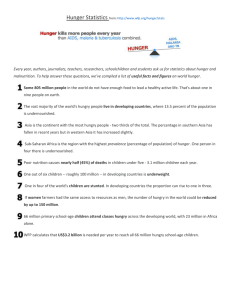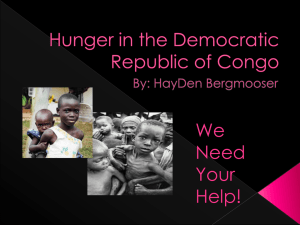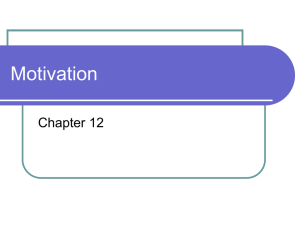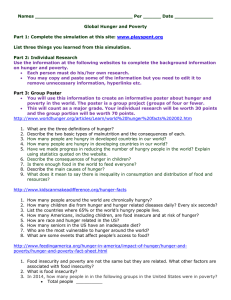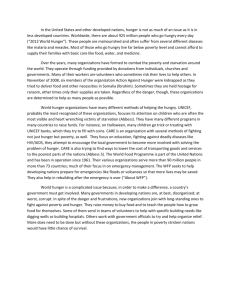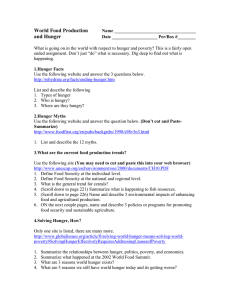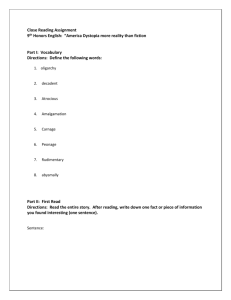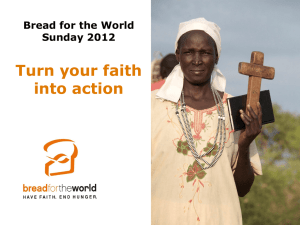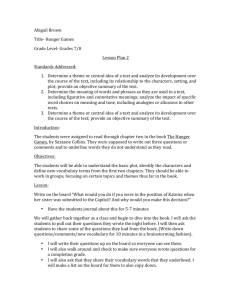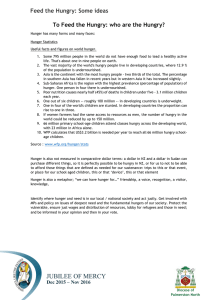Names Per ______ Date ______ The Face of Hunger Complete the
advertisement
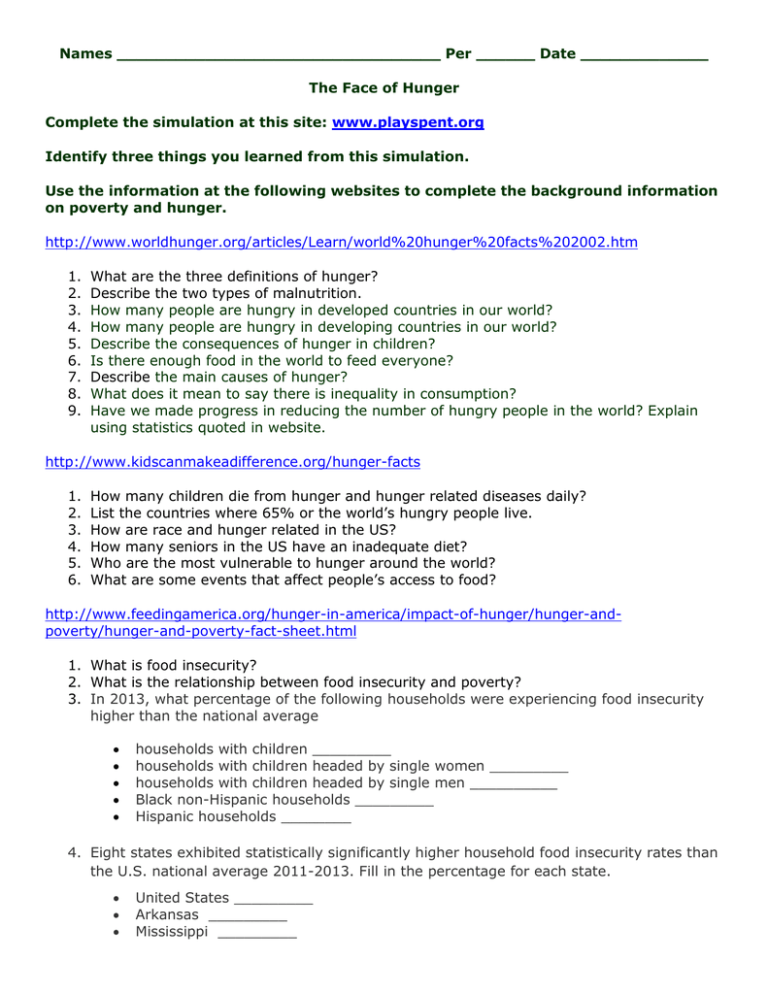
Names _________________________________ Per ______ Date _____________ The Face of Hunger Complete the simulation at this site: www.playspent.org Identify three things you learned from this simulation. Use the information at the following websites to complete the background information on poverty and hunger. http://www.worldhunger.org/articles/Learn/world%20hunger%20facts%202002.htm 1. 2. 3. 4. 5. 6. 7. 8. 9. What are the three definitions of hunger? Describe the two types of malnutrition. How many people are hungry in developed countries in our world? How many people are hungry in developing countries in our world? Describe the consequences of hunger in children? Is there enough food in the world to feed everyone? Describe the main causes of hunger? What does it mean to say there is inequality in consumption? Have we made progress in reducing the number of hungry people in the world? Explain using statistics quoted in website. http://www.kidscanmakeadifference.org/hunger-facts 1. 2. 3. 4. 5. 6. How many children die from hunger and hunger related diseases daily? List the countries where 65% or the world’s hungry people live. How are race and hunger related in the US? How many seniors in the US have an inadequate diet? Who are the most vulnerable to hunger around the world? What are some events that affect people’s access to food? http://www.feedingamerica.org/hunger-in-america/impact-of-hunger/hunger-andpoverty/hunger-and-poverty-fact-sheet.html 1. What is food insecurity? 2. What is the relationship between food insecurity and poverty? 3. In 2013, what percentage of the following households were experiencing food insecurity higher than the national average households with children _________ households with children headed by single women _________ households with children headed by single men __________ Black non-Hispanic households _________ Hispanic households ________ 4. Eight states exhibited statistically significantly higher household food insecurity rates than the U.S. national average 2011-2013. Fill in the percentage for each state. United States _________ Arkansas _________ Mississippi _________ Texas _________ Tennessee _________ North Carolina _________ Missouri _________ Georgia _________ Ohio _________ http://www.wfp.org/hunger/stats 1. Some _________ million people in the world do not have enough food to lead a healthy active life. That's about one in nine people on earth. 2. The vast majority of the world's hungry people live in developing countries, where 13.5 percent of the population is undernourished. 3. Asia is the continent with the most hungry people - two thirds of the total. The percentage in southern Asia has fallen in recent years but in western Asia it has increased slightly. 4. _______________________ is the region with the highest prevalence (percentage of population) of hunger. _______ person in _______ there is undernourished. 5. __________________ causes nearly half (45%) of deaths in children under five - 3.1 million children each year. 6. _____ out of _____ children -- roughly 100 million -- in developing countries is underweight. 7. _____ in _____of the world's children are stunted. In developing countries the proportion can rise to _____ in _____. 8. If women farmers had the same access to resources as men, the number of hungry in the world could be reduced by up to _____million. 9. _____ million primary school-age children attend classes hungry across the developing world, with 23 million in Africa alone. 10.WFP calculates that US________ billion is needed per year to reach all 66 million hungry school-age children. Solutions and Myths: How do we end the cycle of hunger and poverty? What are some common myths and misconceptions about curing the world hunger problem? There are many agencies that work to end the cycle of hunger and poverty. You may use the links below or look up other resources. http://www.bread.org/hunger/us-poverty-solutions/ http://www.un.org/millenniumgoals/poverty.shtml http://borgenproject.org/10-ways-stop-world-hunger/
